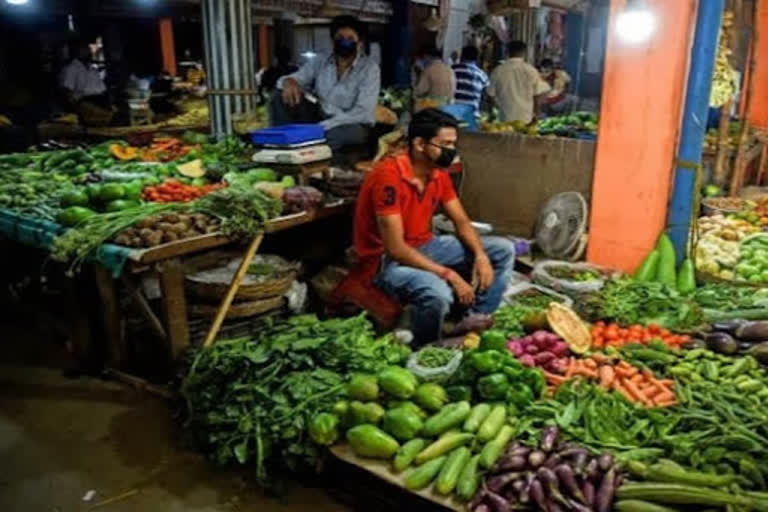Hyderabad: As coronavirus pandemic has become a global concern, the crisis has also affected the prices of vegetables across India due to disrupted supplies.
In the past fortnight, the prices of cauliflowers, green peas, tomatoes, potatoes and onions have skyrocketed following which the middle-class consumer has started voicing the problem of soaring vegetable prices.
People in Telugu states are facing great inconvenience with the prices of beans reaching Rs 80 per kg and legumes Rs 70 per kg. Amid heavy rains, locally grown varieties like ridge gourd, cucumber, bitter gourd, etc., have also been affected as the area under cultivation has been flooded with rainwaters.
Hyderabad city, which is completely dependent on vegetable supplies from other cities, has been hit hard by the impact of increased transport hire and labour charges.
On the other hand, due to excess production and lack of demand farmers are either dumping their produce or distributing it for free in places like Karnataka.
Read:| Himachal sells 6.82L quintal vegetables amid lockdown
Even the growers of groundnut in Gujarat, tomato in Himachal, potato in Punjab and Haryana, and onion and cucumber on Telugu soil are seriously affected by the COVID fears.
Due to lack of transport facilities and non-availability of labour, farmers across the country are lamenting that all their efforts have been wasted and consumers are being forced to pay a heavy price due to the disrupted supply chain of daily necessities.
The Centre has recently banned exports to foreign countries to control onion prices in the domestic market which recently rose to Rs 40 per kg. Reports suggest that the government is considering a buffer stock of 50,000 tonnes to provide some comfort to consumers. Apart from onions, there is an urgent need for a strong action plan to make a variety of vegetables available at reasonable prices throughout the year amid pandemic.
It is estimated that up to 18 per cent of the fruits and vegetables produced in the country are wasted annually due to lack of proper storage facilities. Amid lack of proper cold storage facilities at the required places to store the perishable goods, the country is incurring a loss of nearly 92,000 crores per annum.
Although the administration has stated that cold storages with a capacity of over three crore tonnes are available across the country, 75-80 per cent of them are meant for storage of potatoes, which indicates the urgent need for priority-based corrective action in the planning process.
The Central and State governments should ascertain information from the respective panchayats about the scope of widely growing appropriate crops at various places in the country and device a detailed action plan to grow the crops. After retaining the required stocks for domestic consumption the balance stock should be exported as per demand. Care should be taken to ensure that agricultural science centres and agricultural universities play an active role in increasing yields.
Hopefully, all these efforts will contribute to the revitalisation of agrarian India.



